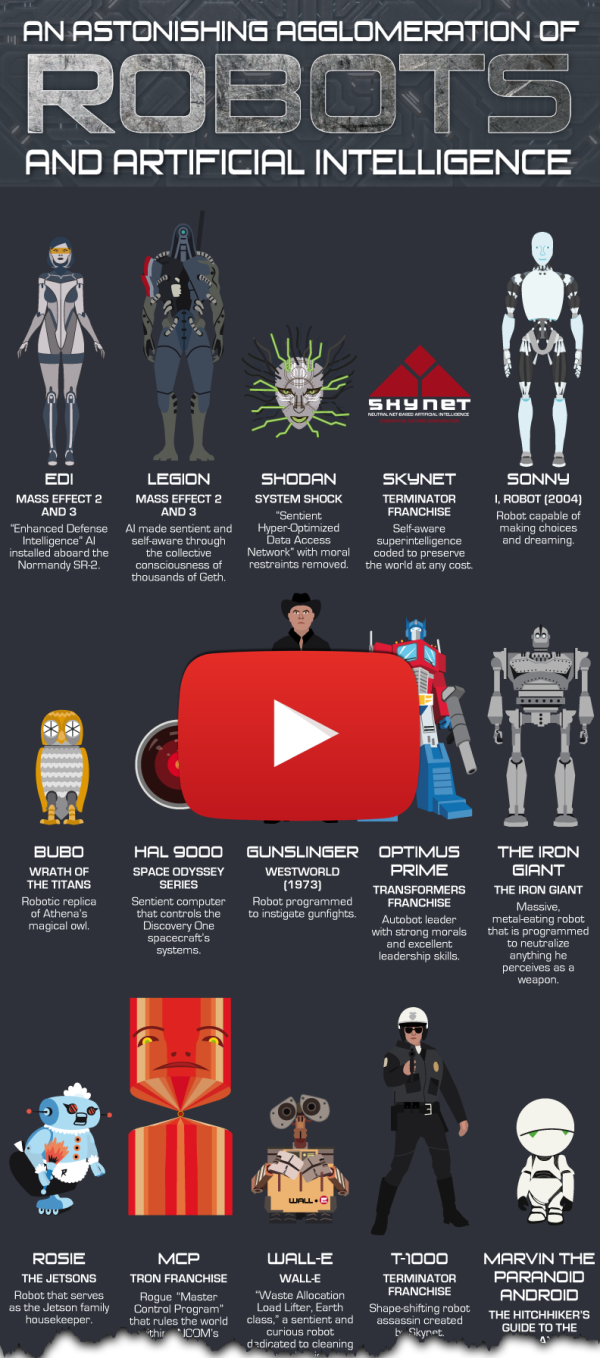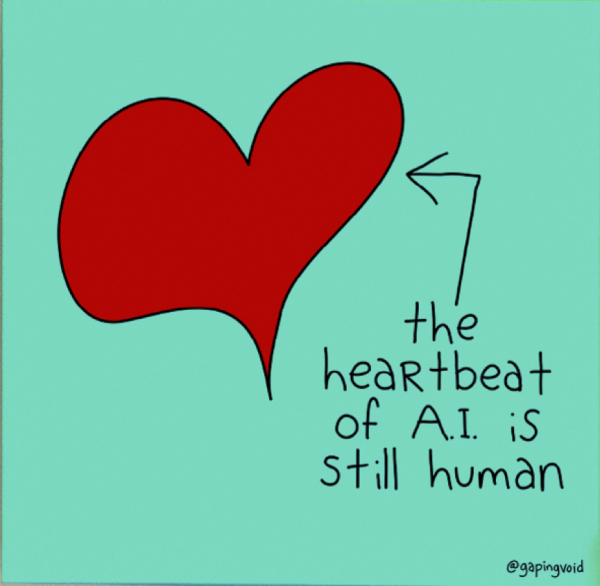AI has been around in science fiction for over 1oo years. As it becomes reality, it's amusing to look at different depictions and attempt to connect the dots.
AI first broke onto the film scene with Metropolis in 1927. "Maria" the evil robot disguising herself as a human played on many human fears; deception, lack of control, and perhaps most importantly being replaced.
Maria represented a future that was bleak and set the foundation for AI in cinema. Since then, there have been approximately 100 movies starring AI.
According to Enlighten Digital, 52% of movies portray AI positively, which means it's about 50/50, and there has been a 144% increase in AI movies since 2010 – so we're becoming more saturated with AI.
According to a study by Cambridge, seeing more films portraying robots (whether positive or negative) is associated with more positive attitudes toward robots. This is in line with the theory that the more exposure one has with "out-group" members (i.e. robots, or people of other races) the more positive one's attitude toward them.
 (Click to view Full Size) via NovaStor
(Click to view Full Size) via NovaStor
The depiction of AI has always been a reflection of its time … as our values, ambitions, and technology has changed, so has on-screen AI.
So what does today's AI look like?
On HBO, we have Westworld. In movies, iRobot, Chappie, and Blade Runner 2049 … it's clear the promise and the peril of AI has continued to evolve.
These movies all have different tones but there's a trope that remains common from that initial film in 1927 to films in 2018.
We're always imagining that next step. What's going to happen as AI becomes (in some ways) smarter than us? What's going to happen when our creations surpass our control? What's going to happen if the line between human and robot blurs?
There are a lot of advancements in real-life, in respect to AI. As such, there is a lot of movement on AI ethics, and how to best limit or best enable AI.
In film, we gravitate toward two extremes – utopias and dystopias. In real life, we can recognize those extremes are unlikely … but the effect of AI is still profound.
We're expanding a technology with the ability to radically change our world – for better or worse – so it's important to keep a purpose-driven approach. We can't lose track of humanity in the pursuit of AI.
Metropolis's final title card (that first AI movie from 1927) still rings true … "The Mediator Between the Head and the Hands Must Be the Heart"

Onwards!

Leave a Reply